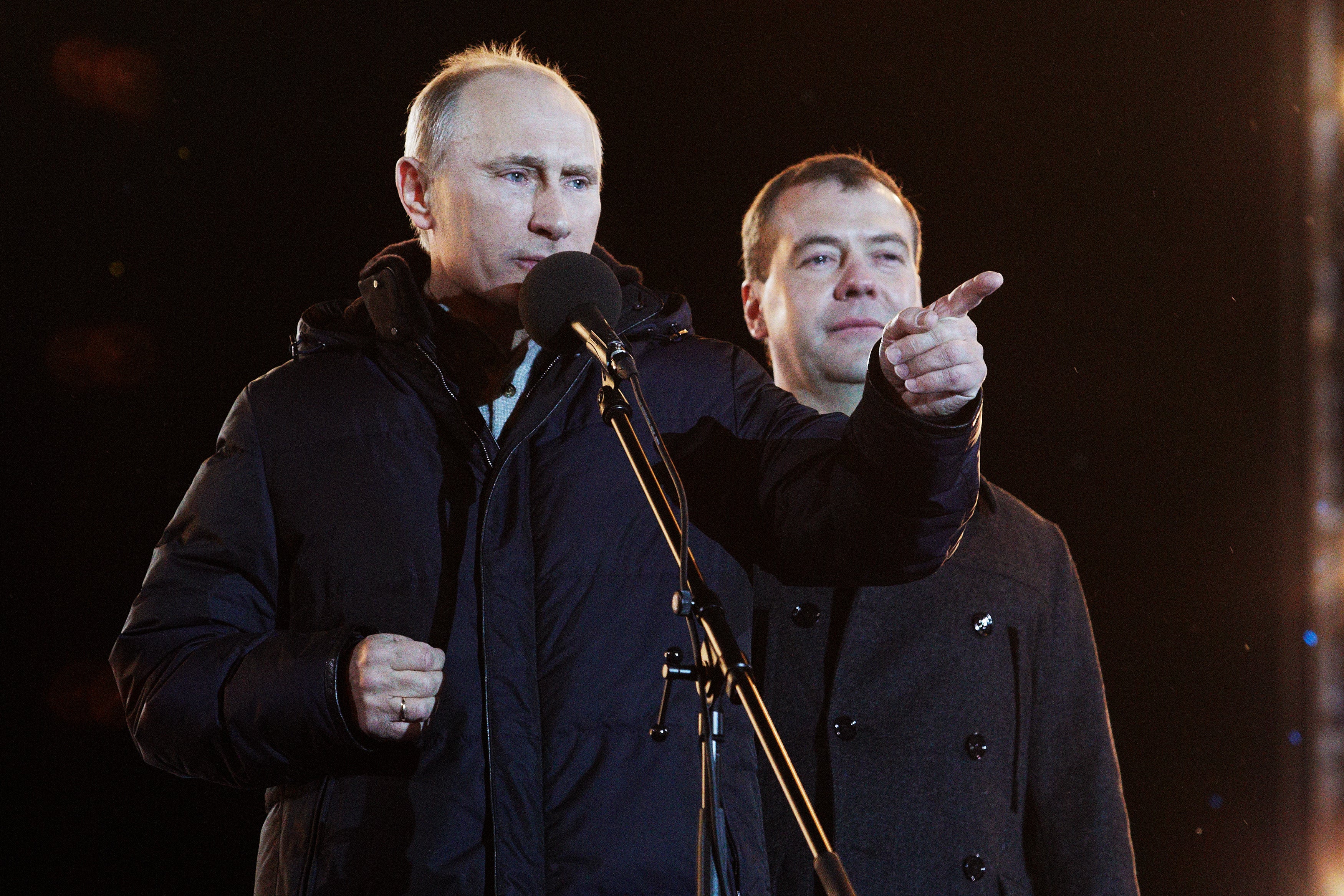How Dmitry Medvedev went from being Russia’s president to Vladimir Putin’s attack dog
Outlandish threats to bomb the German parliament, kill British politicians and bring about ‘nuclear apocalypse’ seem to be keeping Putin happy – but is anyone outside Russia actually listening? Arpan Rai reports


When Dmitry Medvedev gave back the top spot in the Kremlin to Vladimir Putin in 2012, many observers hoped that the more liberal of the two men would continue to use his position to gently steer Russia in the direction of democratic reforms.
What they did not expect was how, a decade on, Medvedev has become Moscow’s primary mouthpiece for nuclear sabre-rattling, as well as death threats to the leaders of Western nations, following his mentor’s full-scale invasion of Ukraine.
A law graduate and then assistant professor at St Petersburg State University in the 1990s, Medvedev entered politics as a consultant to Putin during his time as an official in the St Petersburg city administration, before leading Putin’s first presidential election campaign.
Medvedev became president himself in 2008 after Putin had served the constitutional limit of two terms, and despite the general acceptance that prime minister Putin continued to dictate the direction of the country, utterances such as “freedom is better than lack of freedom” afforded hope that Medvedev was genuinely committed to a reform agenda.
With Putin now back as president potentially until 2036, having “reset” the constitutional term limits by decree in 2021, Medvedev remains one of his closest aides and protégés, still his right-hand-man as deputy chair of Russia’s Security Council.
And it is in this capacity that Medvedev has provided an almost running commentary on the Ukraine conflict and Russia’s so-called “special military operation” there, including dramatic threats of a “nuclear apocalypse”.
“Medvedev carries the weight of the former president and prime minister, therefore people listen to him, the West is required to listen to him because he checks out all the boxes. But despite being Putin’s communication attack dog he doesn’t have diplomatic weight,” says Tymofiy Mylovanov, president of the Kyiv School of Economics.
“What he says does not influence the discussions on the international community or the United Nation’s table. This is a pure communication strategy run from the Kremlin,” he tells The Independent.
Mylovanov sees these nuclear threats from Medvedev in the broader context of Russian propaganda, about the conflict. Such comments are designed to scare people, including those in the West, and encourage the view that Ukraine should seek an end immediate end to Russia’s invasion – by ceding control of the country.
Since February last year, Medvedev has made increasingly bellicose nuke-related threats on a monthly basis, often going further than those of defence minister Sergei Shoigu and Putin himself.
In March, he said the threat of nuclear crisis has only grown as the war dragged on. “Every day when they provide Ukraine with foreign weapons brings the nuclear apocalypse closer,” he said.
In May, he cited what he described as the “irreversible laws of war” in the event that the West arms Ukraine with nuclear weapons – though no Western government has said it is considering doing so. That didn’t stop Medvedev declaring that “if it comes to nuclear weapons, there will have to be a pre-emptive strike”.
This week, Medvedev called British public officials a “legitimate military target” because of the UK’s support for Ukraine through defence exports and training. His comments came shortly after British foreign secretary James Cleverly said Ukraine had the right to “project force beyond its borders” into Russia to resist Putin’s invasion.
The UK, Medvedev said, was an “eternal enemy” of Moscow, and Britain’s support for Kyiv amounted to an “undeclared war” against Russia, in a new low for Russia-UK ties.
Medvedev has filled the vacuum of a powerful voice dedicated to issuing threats and come out as one of Russia’s most hawkish officials.
Another pointed threat came after the International Criminal Court issued an arrest warrant for Putin. Then, Medvedev responded to defend his mentor after the German justice minister Marco Buschmann said his nation would implement the warrant if the Russian president entered their territory.
"Let’s imagine… the leader of a nuclear power visits the territory of Germany and is arrested. In this case, our assets will fly to hit the Bundestag, the chancellor’s office and so on," Medvedev responded.
Experts say Medvedev’s sharp rhetoric has become dulled by repetition, and that he is most likely lashing out through such comments for the benefit of domestic audiences, and to curry favour with Putin.
“I think at this point most people outside of Russia are simply ignoring Medvedev’s comments,” says Joshua Tucker, professor of politics and an affiliated professor of Russian and Slavic Studies at New York University.
“At best, his outlandish remarks can be taken as a sign that the Kremlin feels there is a pro-war domestic audience that needs to be fed additional red meat from time to time; at worst, he may just be trying to somehow appear to be relevant.”
When it comes to watching for meaningful changes in Russian policy, Tucker doubts if Western governments are paying any heed to Medvedev.
“My suspicion is that while Putin probably sees a role for Medvedev’s sabre-rattling as part of his strategy for maintaining domestic political support at home – otherwise Medvedev would likely have stopped by now – I doubt he really plans to embrace a military strategy of targeting British political leaders," he tells The Independent.
“Leaders don’t try to kill other countries’ leaders because they don’t want those same leaders trying to kill them as well,” he adds.
Mylovanov, a former economy minister in the Ukrainian government, says that while the Russian nuclear threat can never be ignored entirely, in Kyiv’s view each warning from Medvedev makes the prospect of nukes actually being used in the conflict less likely. “Another five such threats, and no one will take Medvedev seriously,” he says.
“Medvedev has limited amounts of capital, trust and influence. Eventually Putin will have to use someone else as his attack dog.”
Join our commenting forum
Join thought-provoking conversations, follow other Independent readers and see their replies
Comments




Bookmark popover
Removed from bookmarks